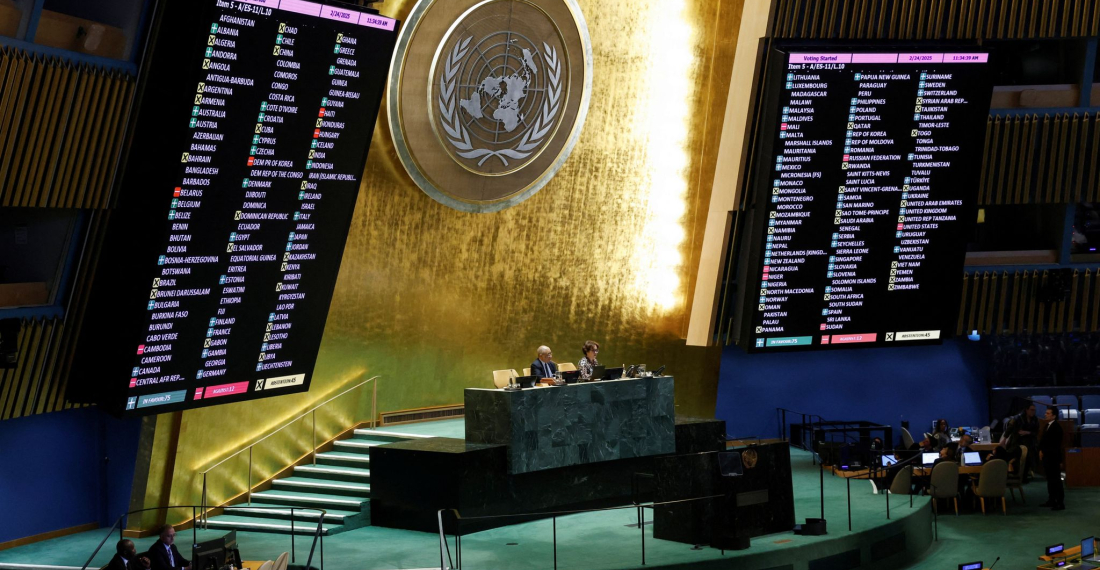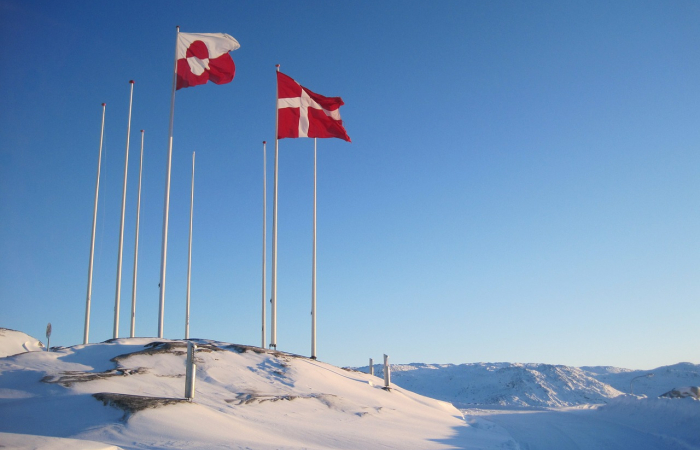The US has twice sided with Russia in votes at the United Nations to mark the third anniversary of the Russian invasion of Ukraine, highlighting the Trump administration's change of stance on the war. First the US opposed a European-drafted resolution condemning Moscow's actions and supporting Ukraine's territorial integrity, voting the same way as Russia and countries including North Korea and Belarus at the UN General Assembly (UNGA) in New York. Then the US drafted and voted for a resolution at the UN Security Council which called for an end to the conflict but contained no criticism of Russia. The Security Council passed the resolution but two key US allies, the UK and France, abstained after their attempts to amend the wording were vetoed.
The UN resolutions were tabled as French President Emmanuel Macron visited President Donald Trump at the White House an attempt to address their sharp differences over the war. On Thursday, British Prime Minister Sir Keir Starmer will also visit President Trump. Trump's White House has upended the transatlantic alliance, currying favour with Moscow and casting doubt on America's long-term commitment to European security.
That rift was laid bare on the floor of the 193-member UNGA on Monday as US diplomats pushed their limited resolution mourning the loss of life during the "Russia-Ukraine conflict" and calling for a swift end to it. European diplomats tabled a more detailed text, blaming Russia for its full-scale invasion, and supporting Ukraine's sovereignty and territorial integrity. "We need to reconfirm that the aggression should be condemned and discredited, not rewarded," said Ukrainian Deputy Foreign Minister Mariana Betsa.
UNGA members backed the European resolution by 93 votes but the US did not abstain but actually voted against it, along with Russia, Israel, North Korea, Sudan, Belarus, Hungary and 11 other states, with 65 abstentions. The UNGA also passed the US resolution but only after it was amended to include language supporting Ukraine, which led to the US abstaining.
At the much more powerful 15-member UN Security Council, the unamended US resolution - which called for an end to the conflict but contained no criticism of Russia - was passed by 10 votes, with the UK, France, Denmark, Greece and Slovenia abstaining.
America's acting envoy to the UN, Dorothy Camille Shea, described the US resolution as a "simple historic statement... that looks forward, not backwards. A resolution focused on one simple idea: ending the war".
Rarely has the US been so at odds with its supposed European allies. Since Russia invaded Ukraine three years ago, the Security Council has been deadlocked by the power of Russia, one of its five permanent members, to veto any resolution there. For this reason the UNGA has been the main forum for debating the war. But its resolutions are not legally binding for member states, unlike those of the Security Council.






